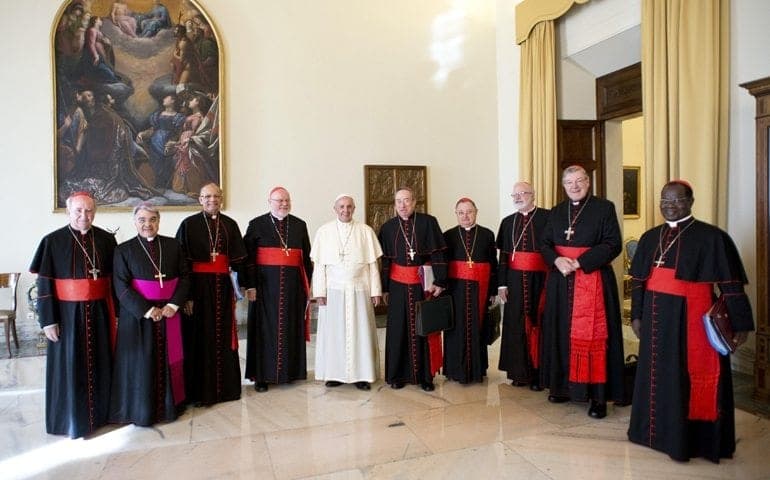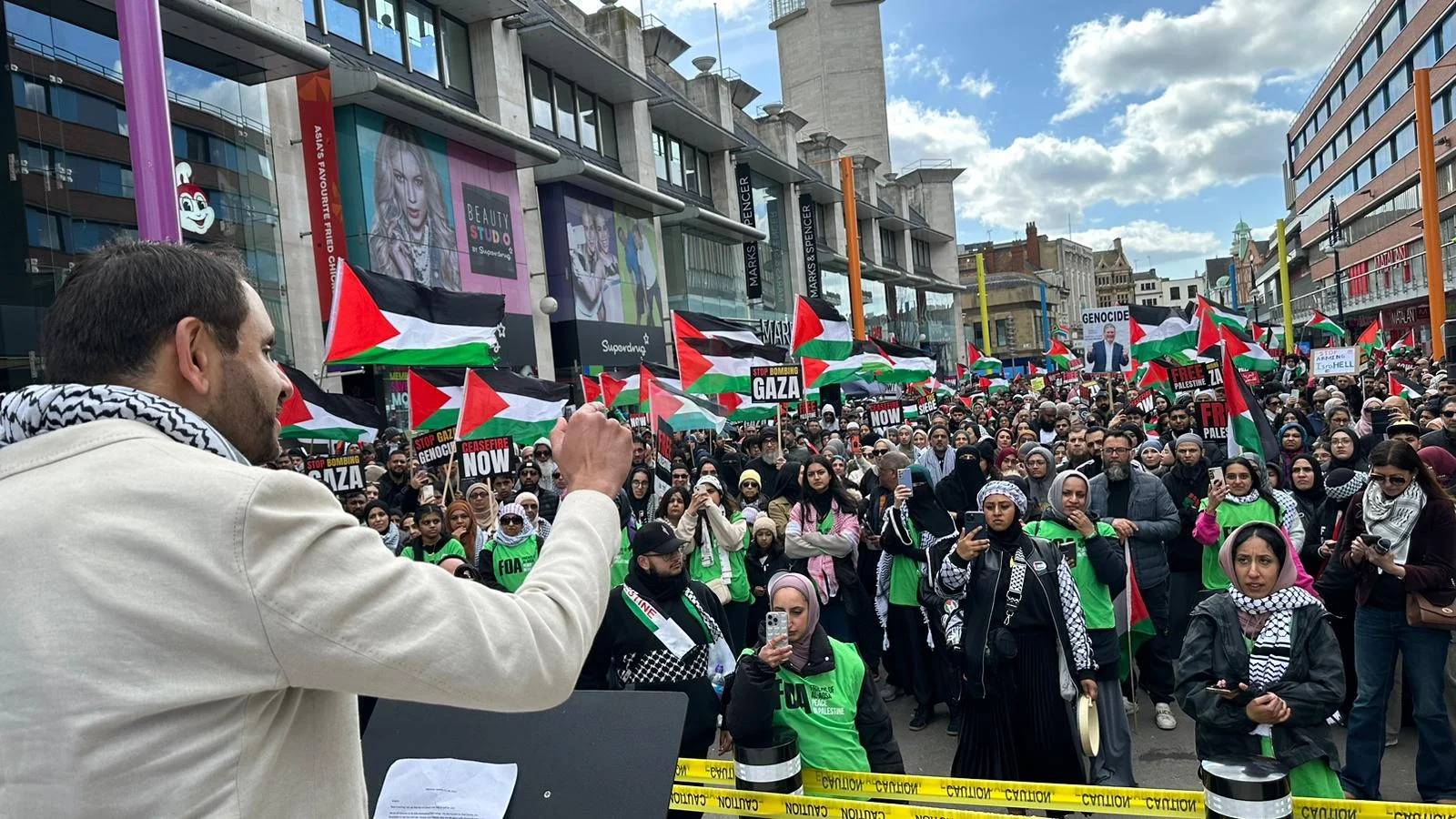Generally speaking, you know a manager is in trouble when somebody has to put out a statement expressing “full confidence” in his or her leadership. If a corporate board does that for the CEO, it’s usually a sure sign of either scandal or a drop in profits; if a sports franchise owner does it for the coach, it usually means the team is failing.
Granted, the Catholic Church is hardly either a corporation or a sports team. There’s a truckload of differences, including this key point: A CEO or a coach can both be fired, but not a pope.
Still, it’s probably not entirely meaningless that on Monday the “C9” council of cardinal advisers, a body created by Pope Francis to be his primary sounding board for Church governance, felt compelled to release the following brief statement. To be sure no one missed it, the Vatican didn’t simply insert it into the daily news bulletin, but sent it out through a separate email blast.
“In relation to recent events,” the statement said, “the Council of Cardinals expresses its full support for the work of the Pope, assuring at the same time its full adhesion and backing for His person and His Magisterium.”
The council is led by Cardinal Oscar Rodriguez Maradiaga of Honduras, and its American member is Cardinal Sean P. O’Malley of Boston.
By “recent events,” it’s clear enough what the statement has in mind – anti-Francis posters that went up in Rome on February 4, a spoof version of the Vatican newspaper that made the rounds last week, and the overall climate of frustration in some conservative and traditionalist quarters, featuring charges that Francis is a “bully” who uses the levers of papal power to silence or intimidate criticism.
Cardinal Reinhard Marx of Munich, Germany, a member of the C9, commented on the statement in a Wednesday news conference.
“We didn’t want to make a great thing of it, a great drama, but I think it was time to repeat from our group we are supporting the pope, we are going together with him,” Marx said. “And I think the reception and the reaction showed that it was good, and well accepted, that the Council of Cardinals has underlined it.”
“We have discussion in the Church, that is clear, normal discussions, tensions,” he said. “It will ever be like this. But in a time like this, it’s also clear for us as Catholics that loyalty to the pope is substantial for the Catholic faith, for Catholic believers.”
Clearly, the intent here is noble – a group of cardinals who perceive the pope they serve to be under fire, and who wanted to express their solidarity. They may well have had in their minds something Cardinal Christoph Schönborn of Vienna asked back in February 2013, when Pope Benedict XVI announced his resignation and Schönborn wondered aloud if the cardinals had done enough to support him at critical moments.
The statement may well have been adopted fairly quickly and without much discussion, since presumably there was little need for extended debate in that room about whether the cardinals did or did not back the pope.
Under the law of unintended consequences, however, there are a couple of potential implications of the statement worth considering.
First, one could ask whether such a statement lends a significance to the anti-Francis blowback that heretofore was debatable.
From the beginning, most commentators have been cautioning against exaggerating the dimensions of such resistance, pointing out that the mere fact it can raise a fuss on Twitter, or produce a few posters, doesn’t mean it’s got a large sociological footprint.
Polls still show that Pope Francis has strong support at the grassroots, he continues to have a massively positive media profile, and there’s little evidence of widespread defections in protest over his policies in terms of Mass attendance, financial giving to the Church, and so on.
Up to this point, in other words, it’s been possible to suggest the blowback is no more than business as usual, and not especially serious. By engaging it in such a high-profile way, it’s at least worth mulling whether the cardinals have inadvertently done it a favor.
Second, it’s also worth considering whether the C9 may have unwittingly put pressure on other groups of bishops around the world to follow their lead and issue their own statements of support for the pope.
One could imagine, for instance, the next time the full College of Cardinals gathers for a consistory, media coverage may focus on whether they too will issue a statement – and, if they don’t, people may ask why not, who blocked it, who’s on which side, and so on almost ad infinitum.
Or, to take a different example, the next time the U.S. bishops gather, will commentators and reporters ask if they intend to follow the lead of the C9 and express their loyalty to the pope? Will the same thing happen to other bishops’ conferences around the world, or to regional gatherings of bishops such as SECAM in Africa and the FABC in Asia?
It’s at least possible if, say, a month from now, nobody else has done so, the take-away may be that the C9 statement fell on deaf ears, which would obviously be a somewhat embarrassing outcome from their point of view.
It’s certainly not much of a stretch to imagine that if the U.S. bishops come together and don’t say something akin to the C9 statement, some media outlets, already invested in perceptions of a rift between conservative American prelates and a progressive pope, may decide to make an issue out of it.
Granted, one could argue that because Pope Francis created his council of cardinal advisers to ensure that the voice of the local churches is heard when he makes decisions, there’s really no need for any specific local church to say anything, because these cardinals already represent them.
Whether others around the Catholic world or in the media will view it that way, however, remains to be seen.
None of this is to suggest that the cardinals’ statement wasn’t either timely or appropriate. When you’re playing on a big stage, however, sometimes you also need to be thinking about the next act.


















